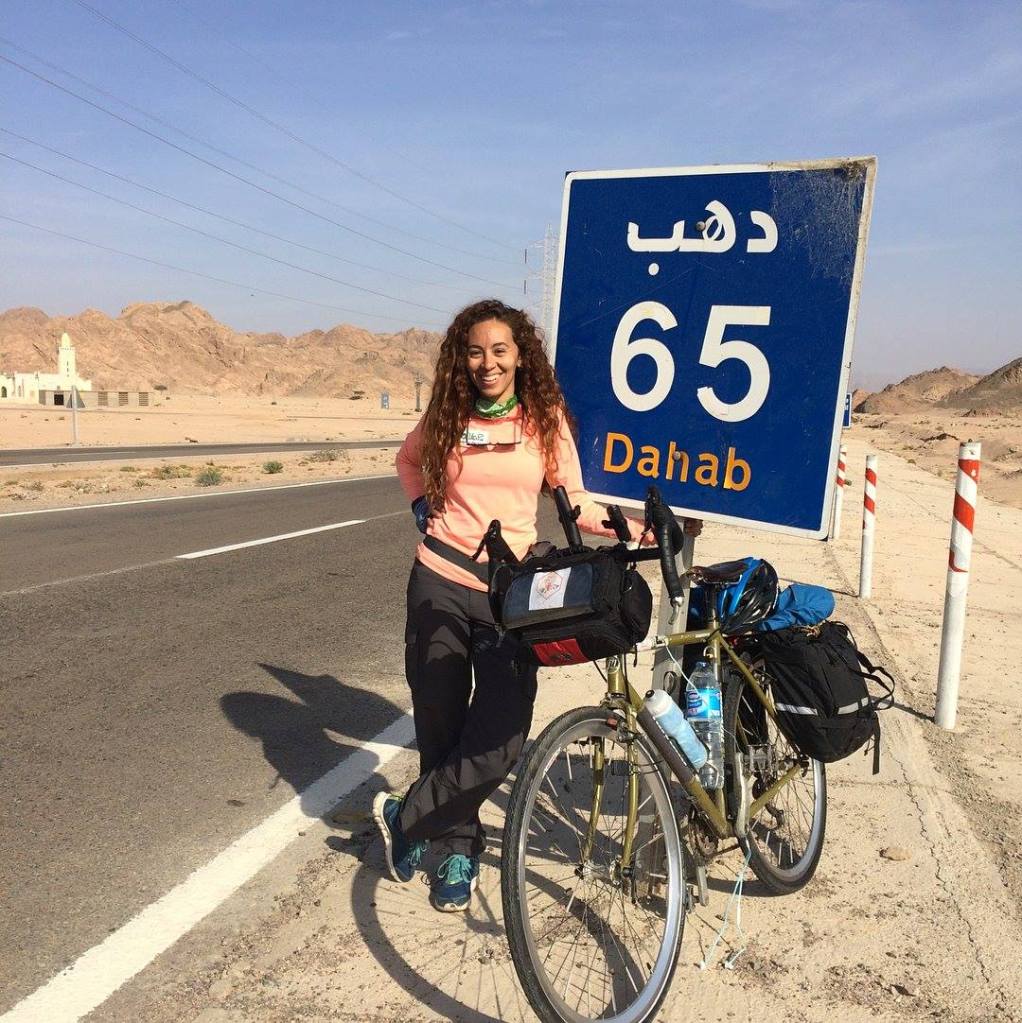Friday September 11, 2020
By: Lara Ahmed
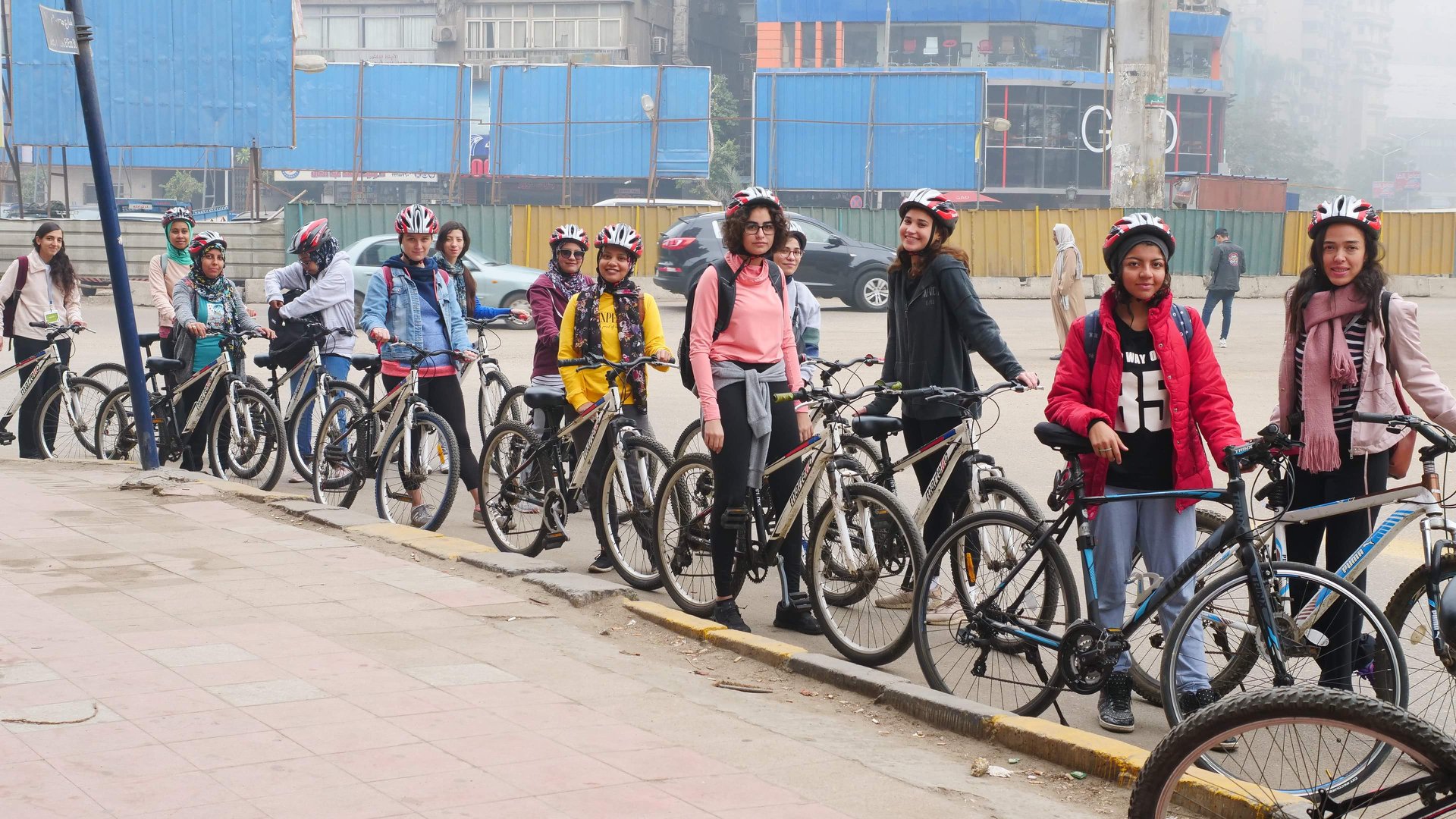
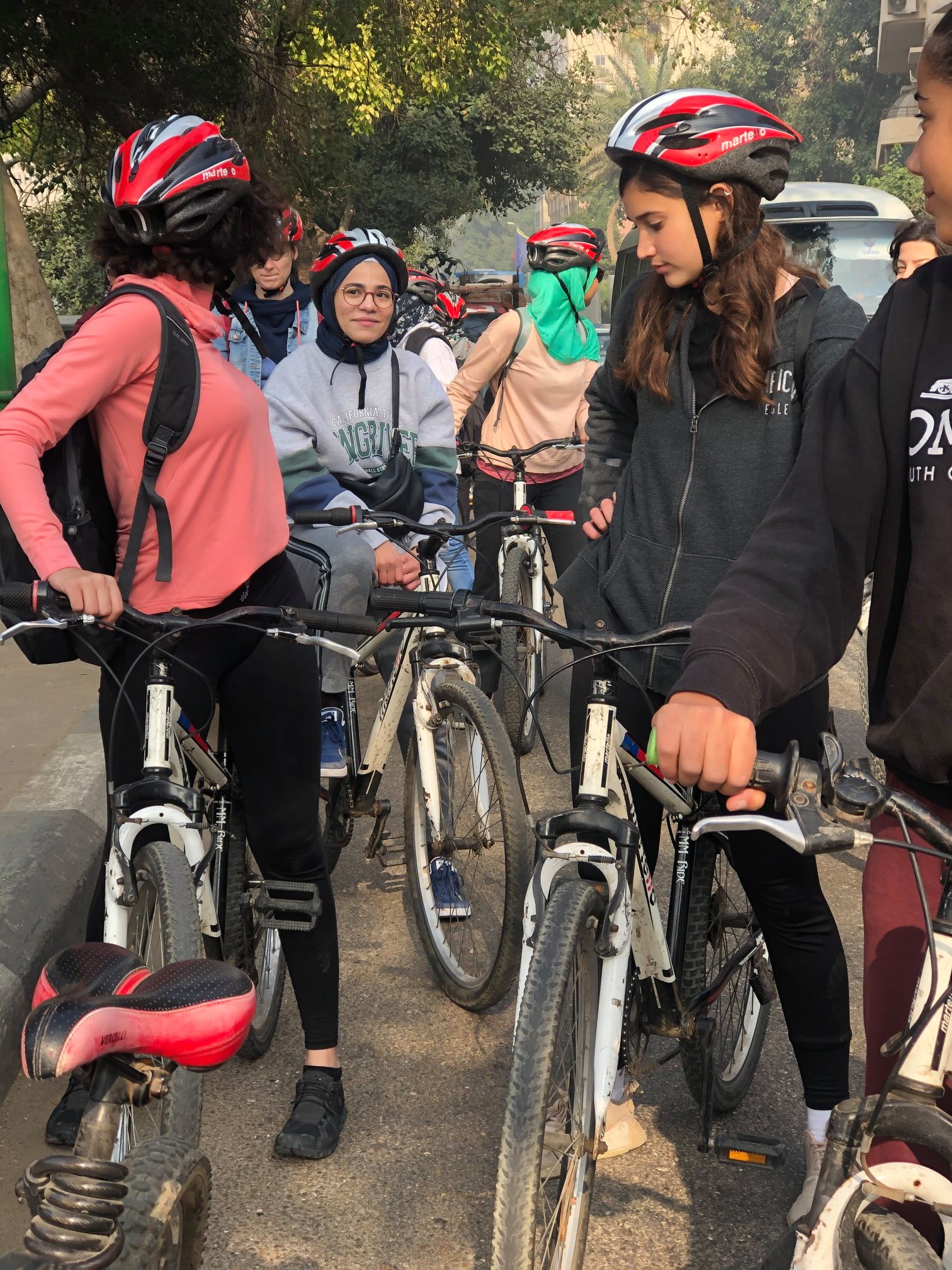
In many ways, cycling is seen as not just a forgotten sport, but also a lost art. Thankfully, it is a money- saving means of transportation that many still use today. Yet, if you were to walk around an average Egyptian neighborhood, you’d have trouble spotting a woman on a bicycle. The fact remains that cycling is considered taboo for women in Egypt. Why does such a beneficial sport still spark controversy?
Cycling and gender
It should come as little surprise that in this modern world people don’t cycle as much as they used to. While there are no global statistics on the number of women who cycle, experts say that balance in gender among cyclists is reflected by how safe roads are. In 2017, The Guardian noted that women made up about 55 percent of cyclists in the Netherlands and Denmark.
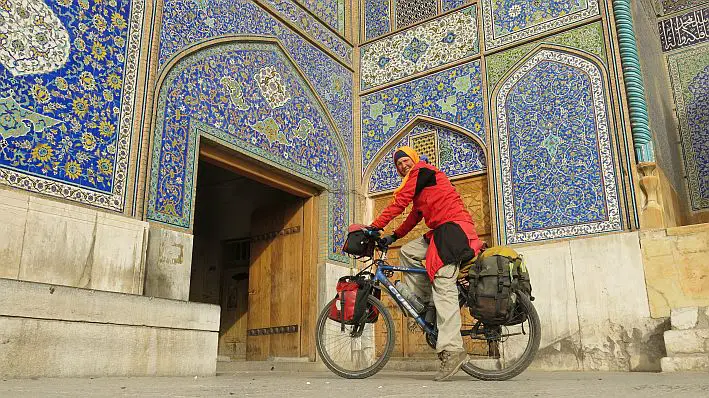
In some countries, governments laws and official opinions can also be obstacles for female cyclists. In 2016, Iran’s Supreme Leader Ali Khamenei issued a fatwa banning women from cycling in public. Authorities in the city of Marivan have even arrested women for cycling, while the police across Iran continue to warn women who still cycle. Women worldwide report avoiding cycling out of fear of harassment. Indeed, female cyclists frequently share stories of being harassed or even assaulted on their bicycles.
Cycling in Egypt
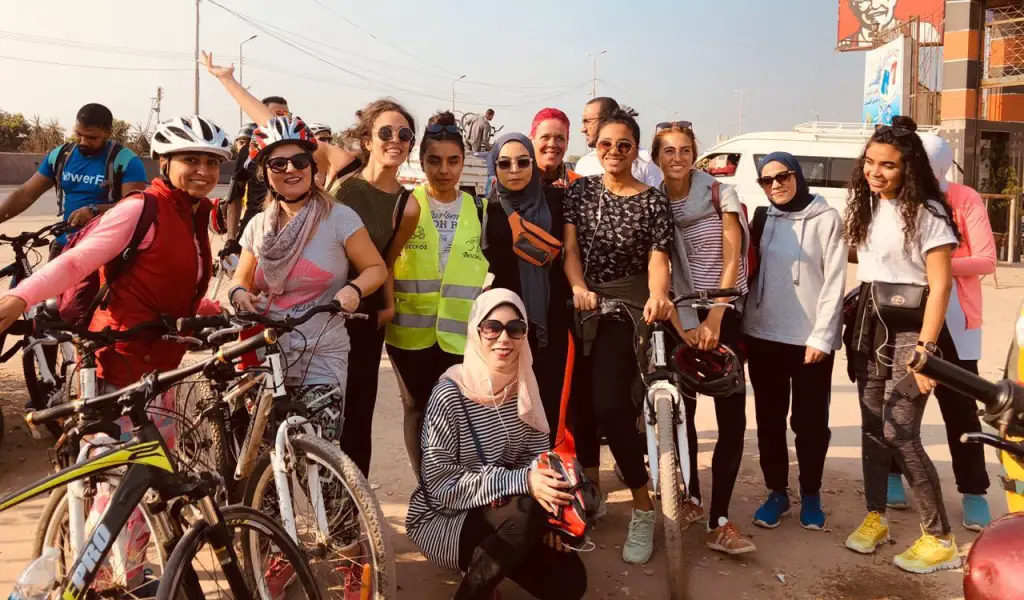
Social stigmas show themselves in many ways in Egypt and over the last few years, women have fought back. In 2013, the online initiative “Girls Revolution” called upon Egyptian women to push against the stigma that cycling is “unladylike” with their campaign, ” We Will Ride Bicycles”.
Similarly, long-term initiatives have begun to tackle the issue. The “Cairo Cycling Geckos” is a female empowering cycling initiative in Egypt that even organizes charity cycling rides. Since Nouran Saleh founded the group, bicycle rides have been organized monthly in the poorest neighborhoods of Cairo, and even in remote villages. They continue to send positive messages whether it’s by distributing meals or encouraging girls and women to ride safely in the COVID- 19 pandemic.
Women who cycle are often shocked when their loved ones claim that a girl riding a bicycle down the street is responsible for any harassment she experiences. Nonetheless, all these campaigns and initiatives inspire women to ride bicycles around the streets of Egypt. Women are even taking it a step further by cycling solo and taking challenging trips across the country.
Hamsa Mansour drew attention in 2017 when she cycled solo for eight days on the roads of Sinai and around the Red Sea. She also works as an adventure trip leader in Omar Samra’s “Wild Guanabana. Mansour also used her experiences to create Blue Camel Media, which celebrates nature and adventurers.
Riding past stigma
Other more conservative countries in the Arab world are also beginning to change their tune. In 2018, Saudi Arabia held its first Women-Only Cycling Race, when only a few years back women were limited to cycling in private areas under male supervision.
Egyptian cyclists have their experiences mirrored by other pioneers too. Female motorcyclists are similarly frowned upon because of the stereotype of “recklessness” associated with motorcycles. In 2016, Shereen Adel became the first Egyptian woman to tour Egypt on a motorcycle. Other cyclists like Dina Wassef have become known as Egyptian pioneers of bike-riding and taboo-breaking.
Time and again, the women and girls of Egypt have shown that cycling is not a pointless rebellion against tradition. Female cyclists and bike-riders don’t treat their situation as “us vs them”. On the contrary, many women use their passion for the sport to build a closer connection to their country and its citizens. When they take to the roads it’s as if nothing can stop them, and maybe one day nobody will try to.
***If you liked this article, don’t forget to subscribe to our newsletter and receive our articles by email.

